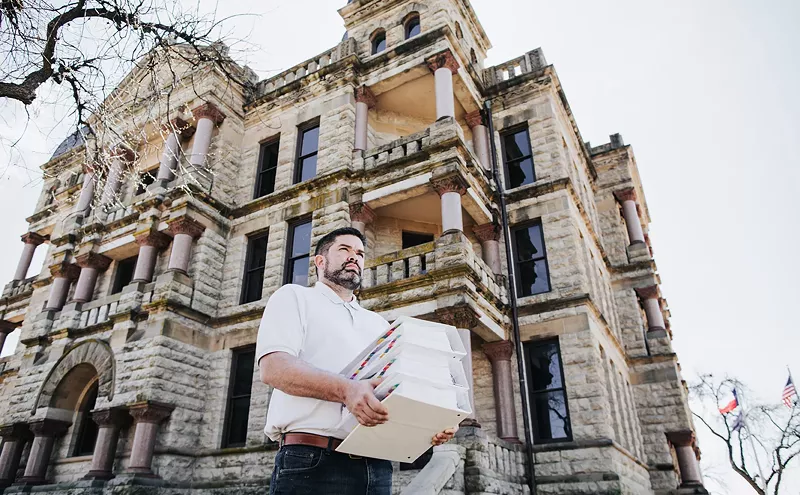This past spring, Dallas ISD rolled out a generally successful push for eligible families to sign their 4-year-olds up for pre-k. Early registration more than doubled, from 3,288 to 6,905, and while the increase in the number of kids who ultimately enrolled was slightly less impressive -- from about 9,000 to about 9,500 -- a 5.5 percent jump isn't bad.
DISD's pre-K expansion, though, is just getting started.
"What we're looking at this year is a heavier investment in preschool and also our early childhood [program]," Superintendent Mike Miles told Unfair Park last week.
Step one involves ensuring that DISD has the capacity to serve as many eligible 4-year-olds (i.e. those who qualify for free or reduced lunch, have limited English proficiency, are homeless, have been in foster care or have a parent on active duty in the military) as possible and making sure the program is solid through expanded professional development opportunities for pre-k teachers and coordination with outside partners. (Commit comes to mind.)
Alan Cohen, executive director of early childhood education at DISD, declined to project enrollment growth but says the district plans to add an additional 20 pre-k classrooms by the end of the 2014-15 school year, one of which will be at Mata Elementary just south of White Rock, which is being transformed into a Montessori school and will offer integrated classes with 3-,4-, and 5-year-olds.
It's not as simple, though, as simply adding space. Last year, DISD had the capacity to teach an additional 800 4-year-olds, but the available slots aren't necessarily where the demand is, which is why some pre-k programs have waiting lists while others have empty seats. Also, some locations need more bilingual pre-k teachers while others need more general ed instructors.
"What we're trying to do is to be as strategic as possible," Cohen says. They will put space not only where demand currently exceeds supply but also where the district projects the population of children to grow.
In reality, though, Dallas 4-year-olds are pretty well served in terms of educational access, with 80 to 85 percent enrolled in Head Start, DISD or a nationally accredited private pre-k, meaning outreach efforts will quickly see diminishing returns. It's the 3-year-olds who stand to benefit the most from DISD's efforts.
According to a report from the National Institute for Early Education Research, just 15 percent of Texas 3-year-olds are enrolled in Head Start or a state-funded pre-k program. That figure doesn't include kids in high-quality private pre-k -- a not insubstantial number -- but it's low, about a fourth of what it is for 4-year-olds.
The funding is already there. The state of Texas has long offered districts the same $3,300-per-student for teaching eligible 3-year-olds as it offers for 4-year-olds, but DISD has never enrolled the younger children on any scale because, Cohen says, it has never fulfilled the prerequisite of having the capacity to teach all eligible 4-year-olds.
Next year, Cohen says, "we are going to pilot some 3-year-old classrooms in areas -- and only areas -- where there is excess capacity for 4-years-olds." Mata will be accepting 3-year-olds. Eventually, Cohen envisions a city in which all 3- and 4-year-olds have access to high-quality pre-k.
For a school district focused on improving long-term outcomes for students, it makes sense.
"It's really important that we get kids the kind of foundation that they need in early years," Cohen says. "Eighty-five percent of a child's brain development happens before the age of 5. The longer we wait, the more difficult, more expensive and less effective those interventions are going to be."
Given that, though, why wait until 3? Why not the cradle?
Miles says the cradle-to-college approach to education is appropriate. That said, "we still haven't had this full discussion with the board or the community. The question [right now] is can we enroll more 3-year-olds? Then there's questions of to what degree to invest in the 0-3 space."
It'll take a long and healthy back-and-forth, between parents, educators, and of course taxpayers, to answer them.
Correction: In our original post, we wrote that Harllee Elementary School in Oak Cliff and Frazier Elementary School in South Dallas would reopen to offer pre-k programs. They will not. The DISD board turned down a proposal to do so during the spring
Send your story tips to the author, Eric Nicholson.












